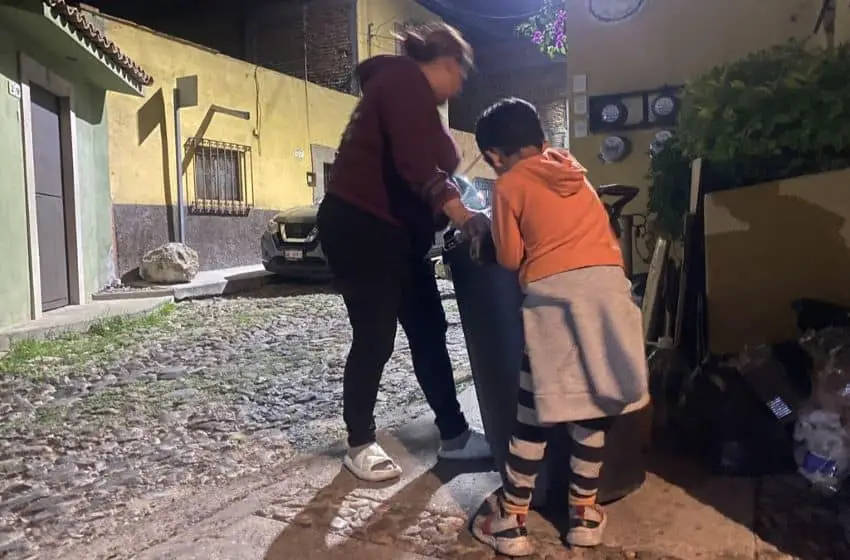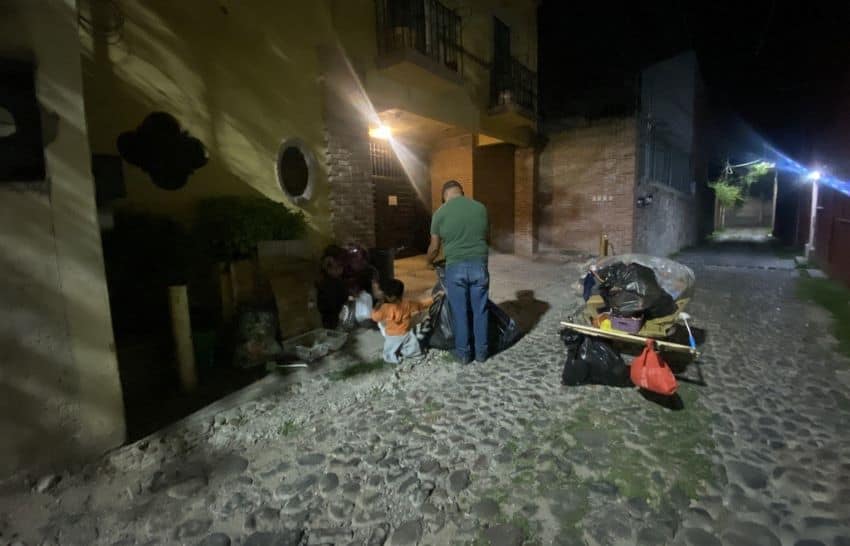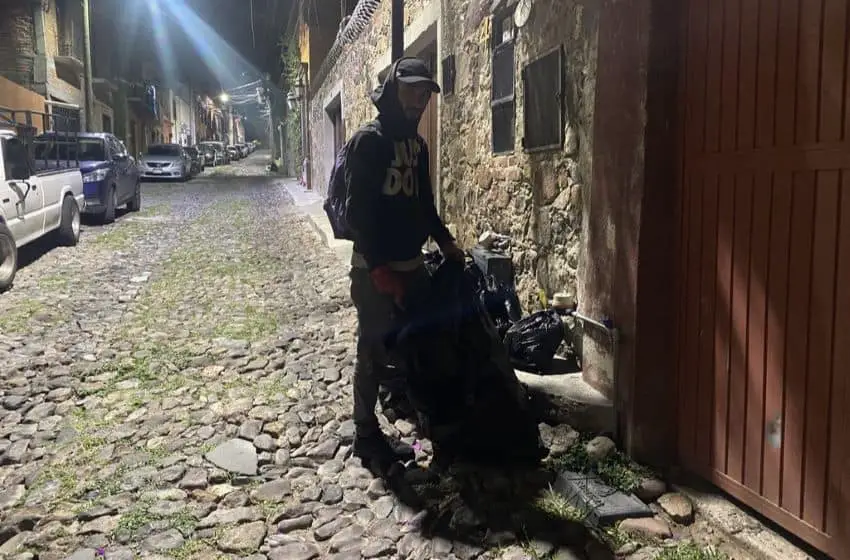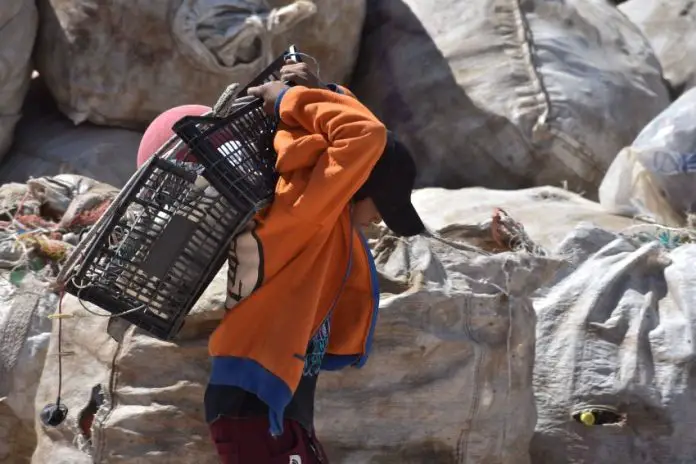Expats in Mexico often feel uncertain about what to do with the reusable materials they discard. Without a formal recycling system or clear guidelines, the way to manage trash properly can be confusing. In Mexico, recycling is not mandatory and recycling bins are a rare sight.
Given this lack of infrastructure, waste management in Mexico depends on the efforts of people who work in the shadows. Collectors, also known as “pepenadores,” sort and separate trash to extract materials they will later sell to recycling plants. This work is often their only source of income and the only means by which reusable materials avoid reaching landfills.

Despite their vital role in recycling, collectors operate outside any regulatory framework. They receive very little recognition or assistance and lack access to wages, benefits or safety gear. Pepenadores are on their own, facing significant challenges daily.
The work of a pepenador
There are three types of recyclables collectors in Mexico. First, there are those who sift through the trash placed on the sidewalk before the city’s collection trucks arrive. Second, some trash truck workers separate recyclables throughout their shift, earning extra income by selling these materials. Finally, many collectors work at the landfills, digging through huge piles of waste to extract recyclables.
Although trash collection services are the responsibility of city governments, many people volunteer on trash trucks for the chance to collect materials they can sell. Local governments exploit their need, as thousands work on these trucks for free, circumventing labor protections.
The earnings of recyclables collectors depend on fluctuating prices. On average, recycling plants pay about 1.50 pesos per kilo of cardboard, 10-22 pesos per kilo of aluminum cans and 3-11 pesos per kilo of plastics. These prices can vary due to market demand, the quality of materials and global commodity prices, creating significant income instability. Despite these challenges, pepenadores persist in their work, driven by financial need and the lack of alternative employment opportunities.

Collectors face hardship and exploitation
Work in hazardous conditions without protective gear, recyclables collectors face constant risk. Their job requires sticking their bare hands into mixed trash in the hopes of finding valuable items, often bumping into sharp objects that produce cuts and infection. Working in unsanitary environments, they typically lack access to soap and water, and the physical strain of carrying heavy bags and the threat of injury from unstable piles of waste add to their daily perils.
What is a familiar scene for Mexicans may seem disturbing to foreigners. In the stillness of the night, you suddenly hear rustling noises outside your house. You peek out the window and see a figure hunched over, opening your trash bags. The person in the shadows is focused on the content and taking items out. You feel a rush of unease at this invasion of privacy, leaving you with an unsettling sense of both your vulnerability and theirs.
I have always been concerned for the men and women who walk our streets and sift through our trash. They endure discrimination for their appearance and are despised by some for the mess they unintentionally create.
A simple act of kindness can ease their burden
Waste collectors’ hardship and effort deserve our gratitude and respect, as their effort is essential both for their livelihood and the environment. We can show it with a simple act of kindness: don’t throw recyclables in the general trash. By making valuable materials easily accessible to them, we can dignify their efforts. Separating your recyclables and placing them in a visible manner is very helpful. This small gesture ensures that reusable materials reach recycling plants, supporting the environment and the people who perform this crucial task.

Collectors of recyclable materials usually walk residential streets when trash is placed on the sidewalk the night before scheduled trash truck routes. They mainly collect plastic containers and aluminum cans. Although cardboard is also recycled and worth discarding separately, it is often taken and sold by the trash truck workers because it’s too cumbersome for pepenadores to carry on foot.
Join the #HeroesReciclanMX campaign
I recently launched a campaign with the hashtag #HeroesReciclanMX to raise awareness on this important issue. I invite you to join the initiative by posting this text on your social media:
“Let’s dignify the work of the people who take our discarded materials to the recycling plant by making it easy for them to access and collect recyclable items. We can show our respect and gratitude by not making them dig through our general trash.
To make recycling easier for everyone:
- Place your discarded cardboard boxes, plastic bottles and aluminum cans separately in a basket or bag you don’t use to dispose of any other materials. You can even use cardboard boxes as recyclables baskets!
- Place outside in a visible manner the night before trash truck days; that’s when collectors walk our streets seeking recyclables.
- Don’t worry if it is still there in the morning and taken by truck to the general landfill, discarding separately also helps the many collectors who work there.
Together we can have a positive impact on the lives of collectors and the environment. Thank you for joining this effort! #HeroesReciclanMX”
Doing your part for a better community
By simply placing your recyclable waste outside separately, you can protect your privacy and ease the effort of collectors. Together, we can foster a community that values and supports these heroes and works toward a kinder, cleaner Mexico.
Sandra Gancz Kahan is a Mexican writer and translator based in San Miguel de Allende who specializes in mental health and humanitarian aid. She believes in the power of language to foster compassion and understanding across cultures. She can be reached at: sandragancz@gmail.com
